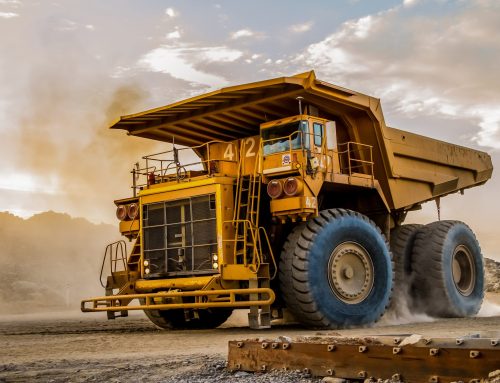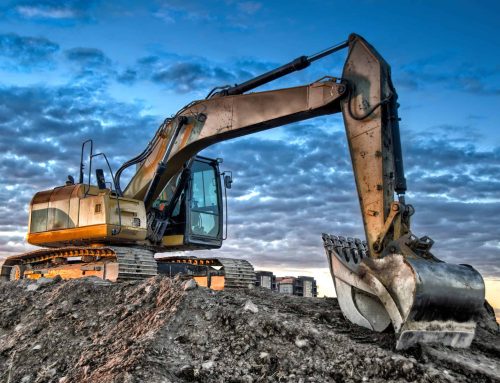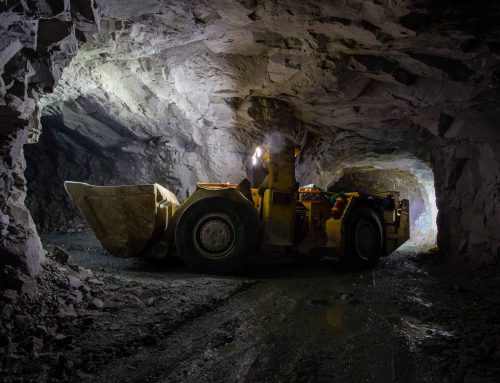Heavy equipment used in industries like construction, mining, agriculture, and forestry plays a critical role in day-to-day operations. However, with the intense conditions these machines face—such as extreme heat, constant friction, and exposure to flammable materials—they are highly susceptible to fires. Protecting these assets and ensuring the safety of workers is crucial, and a mobile fire suppression system is an effective solution.
Explore different types of mobile fire suppression systems, their benefits, and what you need to consider when choosing one for your heavy equipment.
Why Is a Mobile Fire Suppression System Important for Heavy Equipment?
Mobile fire suppression systems are essential for heavy machinery because the equipment often operates in remote areas with limited access to fire services where automatic suppression and detection is vital. When a fire breaks out, there’s little time to react, and the consequences can be devastating. Fires in heavy equipment can result from various causes such as:
- Engine overheating
- Hydraulic fluid leaks
- Electrical failures
- Fuel leaks
- Debris build-up
A fire suppression system automatically detects and extinguishes fires, preventing major damage and downtime, reducing repair costs, and potentially saving lives.
Types of Mobile Fire Suppression Systems for Heavy Equipment
Several types of fire suppression systems are suitable for heavy equipment, each with different extinguishing agents and mechanisms designed to combat various fire sources. The most common types of mobile fire suppression systems include dry chemical systems and wet chemical systems. Recently, wet chemical systems have become more prevalent than dry chemical due to their ability to cool quickly and efficiently, but both systems have their unique benefits and considerations.
-
Dry Chemical Systems
Dry chemical systems are widely used in mobile fire suppression for heavy equipment because of their effectiveness against Class A (ordinary combustibles), Class B (flammable liquids), and Class C (electrical) fires. These systems work by releasing a dry chemical agent like monoammonium phosphate, which interrupts the chemical reactions in the fire, effectively extinguishing it.
Benefits:
- Quick suppression of fires involving fuel and electrical components.
- Suitable for various fire classes, providing broad coverage.
- Affordable and easy to maintain.
Considerations:
- Dry chemicals can leave residue, which might require clean-up.
- Recharging the system after use is necessary.
-
Wet Chemical Systems
Wet chemical systems are particularly effective against Class B fires, which involve grease, oils, and other flammable liquids. These types of systems are particularly effective in cosolinger the higher temperatures generated by turbo chargers and manifolds.
Benefits:
- Highly effective at cooling high-temperature fires.
- Forms a cooling barrier to prevent re-ignition.
- Longer discharge time helps prevent re-flash.
Considerations:
- May be used in specialized applications.
Key Considerations for Choosing the Right Fire Suppression System
Selecting the best fire suppression system for your heavy equipment involves several factors. You want to be certain that the system you choose matches the hazard in which the vehicle will be used, but you’ll also need to choose a system that is reliable and can be easily repaired if necessary. All these considerations, in addition to working with the right fire protection company, are helpful when choosing the right mobile fire suppression system.
-
Type of equipment
Different types of heavy machinery have varying fire risks. For instance, mining vehicles are prone to engine fires due to the presence of fuel, hydraulic fluids, and dust, while agricultural equipment may face risks from overheating due to debris buildup. Understand the potential risks of different types of equipment, but also how the system used as there are different system types for different uses and applications.
-
Fire risk assessment
Conduct a thorough risk assessment of your equipment to determine potential fire sources, such as engine compartments, hydraulic systems, or electrical wiring. A professional fire protection company can help evaluate risks and recommend the appropriate system. It’s important that the type of system lines up with the type of hazard its meant to protect, so conduct a hazard analysis as part of your fire risk assessment process.
-
Environment
Consider the environment in which your heavy equipment operates. Machinery working in extreme temperatures, high dust areas, or near flammable materials such as landfills may require more frequent maintenance.
-
Compliance with regulations
Ensure that the fire suppression system you choose complies with industry standards and local regulations. In Georgia, as in most U.S. states, fire protection systems must meet certain guidelines set by OSHA (Occupational Safety and Health Administration) and NFPA (National Fire Protection Association).
-
Ease of maintenance
Regular maintenance is crucial for ensuring that your fire suppression system works when needed. Choose a system that is easy to inspect and maintain and partner with a fire protection company that offers regular maintenance services. Understand how often to maintain the system. And be sure that you choose a manufacturer that is a major, national manufacturer so that if your system needs repair, parts are readily accessible.
Hiring a Fire Protection Company to Install your System
If you’re planning to install a fire suppression system in your heavy equipment, here are some tips to help you choose the right professional for the job:
- Look for certifications: Ensure that the company is certified to install and maintain fire suppression systems and complies with all relevant codes.
- Experience matters: Choose a company with extensive experience in designing fire suppression systems for heavy machinery. Make sure the technicians have prior experience and knowledge on installing the specific system components of your vehicle’s system, on the specific type of machinery you have.
- Ongoing support: Fire suppression systems require regular maintenance and inspections. Work with a company that offers comprehensive support and service agreements.
- Custom solutions: Every piece of heavy equipment is different. Make sure the system is tailored to your specific machinery and operational needs.
- National dealer: Choose a company that represents a national manufacturer like Ansul. Many fire protection companies are national dealers for reputable manufactures, but some are not which may lead to problems when installing, maintaining, and repairing the system type you choose.
Fire Systems, Inc.
Investing in the right mobile fire suppression system for your heavy equipment is crucial to protecting both your assets and employees. Understanding the different types of systems available, assessing your equipment’s risks, and partnering with a qualified fire protection professional can help you safeguard your operations against costly and dangerous fires.
Fire Systems, Inc. is an Atlanta-based fire protection company with over 30 years of experience. As an all-services fire protection company, we can design, install, inspect, maintain, and repair all aspects of your fire protection systems- including vehicle suppression systems. We are the true fire protection experts. Contact us today at 770-333-7979 or visit our website for more information on all we offer. We look forward to speaking with you.






